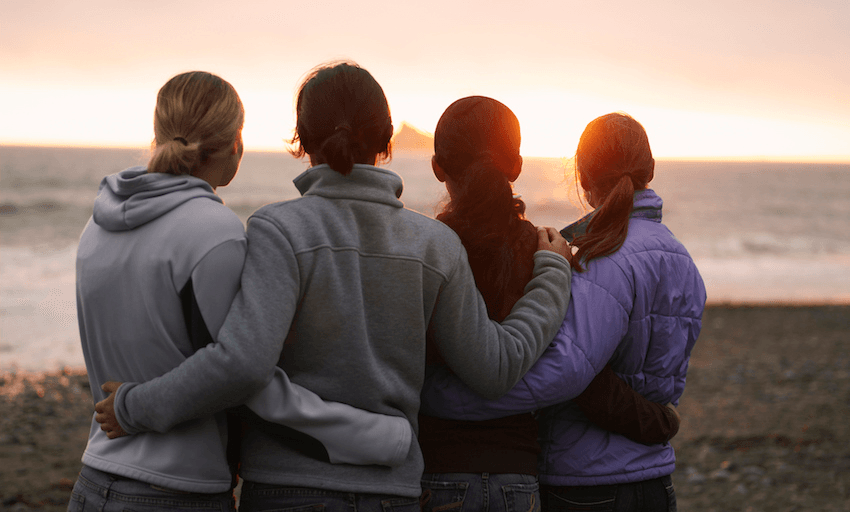The court will be asked to rule that the current voting age, while legally valid, is a form of unjustified age discrimination, explains Andrew Geddis.
Is there any good reason to let 18-year-old people vote, but not those who are 16 or 17 years old? That’s the question the High Court starts grappling with today, in a case brought by the advocacy group “Make it 16”.
They aren’t asking that the court allow those 16-plus to vote in this year’s election. That’s not on the cards, because the Electoral Act is completely clear only “adults” (being persons 18-or-older) are permitted to register to vote. A New Zealand court can do nothing to change this legal reality.
Instead, Make it 16 wants the court to issue a formal declaration that the current voting age, while legally valid, is a form of unjustified age discrimination that is inconsistent with the NZ Bill of Rights Act, s 19. As with the “declaration of inconsistency” issued in respect of prisoner voting, the intention is to leverage such a remedy into political pressure on parliament to reform the law. By getting a judge to lay bare the shoddy basis for restricting individual rights, MPs may be shamed into doing something to fix the problem.
That’s the hope, anyway. Whether they are successful in gaining the declaration they seek will be very interesting to see. Because not only has parliament set the voting age at 18 through the Electoral Act, it’s also made that age a specific limit on the right to vote affirmed by the NZ Bill of Rights Act, s 12(a).
As such, Make it 16 effectively have to argue that the right to vote itself (as recognised currently by parliament through the NZ Bill of Rights Act) is unjustifiably discriminatory. Which all starts to get very meta: this right in the NZ Bill of Rights Act imposes an unjustified limit on this other right in the NZ Bill of Rights Act.
Furthermore, the government will no doubt argue forcefully that while 18 may be a somewhat arbitrary line for deciding who can and cannot vote, it is no more arbitrary than 16 would be. And 18 has been chosen by parliament because by that age each person is deemed sufficiently mature to understand the gravity of voting.
When voting first commenced in the 19th century, this “age of maturity” was placed at 21. It then lowered to 20 in the 1960s. Then, in the 1970s, to the current age of 18, where it stayed when MMP was introduced. So, parliament has thought about this carefully over the years and made its call on the issue.
Of course, that fundamental claim – that only those who have turned 18 are sufficiently mature to vote – is pretty contentious. The reasons for enfranchising people aged 16 and 17 have been well made on this site already by those currently denied the right. Here’s Azaria Howell’s argument as to why she (and those her age) should be allowed to vote. And here’s Gina Dao-McLay making the same claim.
As a person slightly older than 18, I don’t really have all that much to add to their advocacy (which I find quite convincing). The question is whether the court will find the arguments they raise strong enough to show that the nearly 50-year-old legislative decision to discriminate against those aged 16 and 17 is not “demonstrably justified in a free and democratic society”. Because, if it isn’t, then the court probably will issue the declaration the claimants seek.
What happens then is anyone’s guess. However, there’s a big problem with actually getting the voting age lowered to 16. The definition of “adult” in the Electoral Act – basically people who are 18 or older on polling day – is subject to that legislation’s “entrenchment provision”. Accordingly, the voting age can only be changed by more than 75% of all MPs (90 of 120) voting to do so, or else the voters agreeing to do so at a referendum.
Not even in the most fevered imaginations will a post-election House of Representatives contain 75% Labour (or even Labour-Green) MPs. As such, any change to the voting age through parliament will require National to collaborate, as was the intention behind enacting the Electoral Act’s entrenchment provision. And it’s fair to say that National has not been supportive of the call to lower the voting age, on the grounds that young people are basically socialists. (Sorry, sorry … “people [are] potentially vulnerable to parental coercion at 16, and I think those are the sorts of concerns that many of us hold about 16-year-olds voting as well.”)
As such, it may be that the only realistic avenue for lowering the voting age lies in a referendum vote on the issue – after we’ve sorted out assisted dying and the issue of cannabis, that is.

